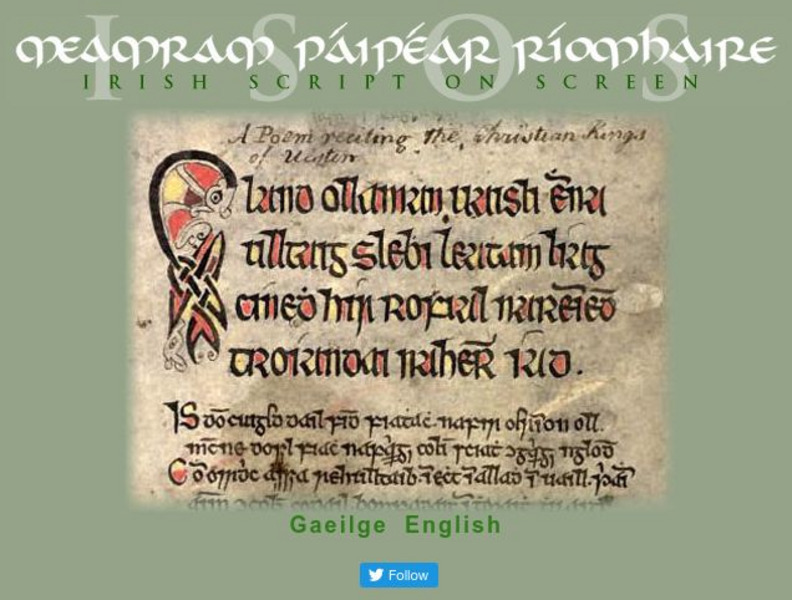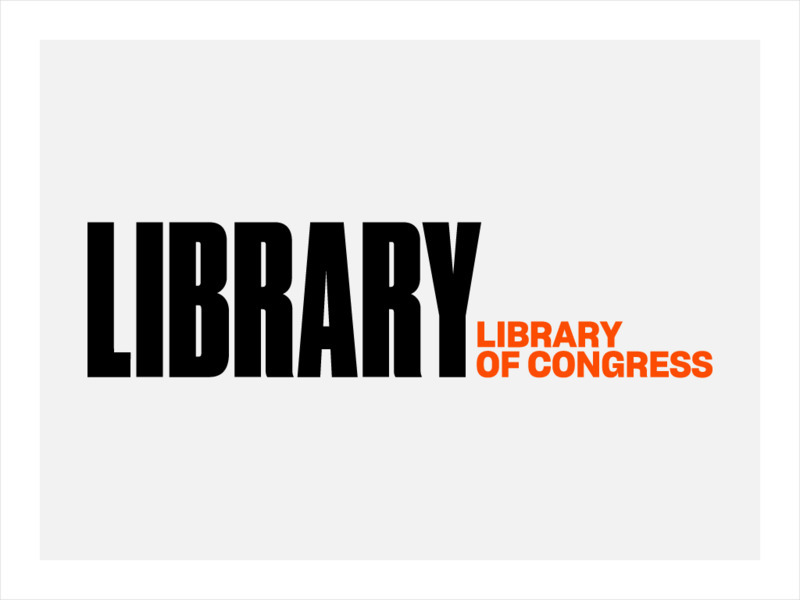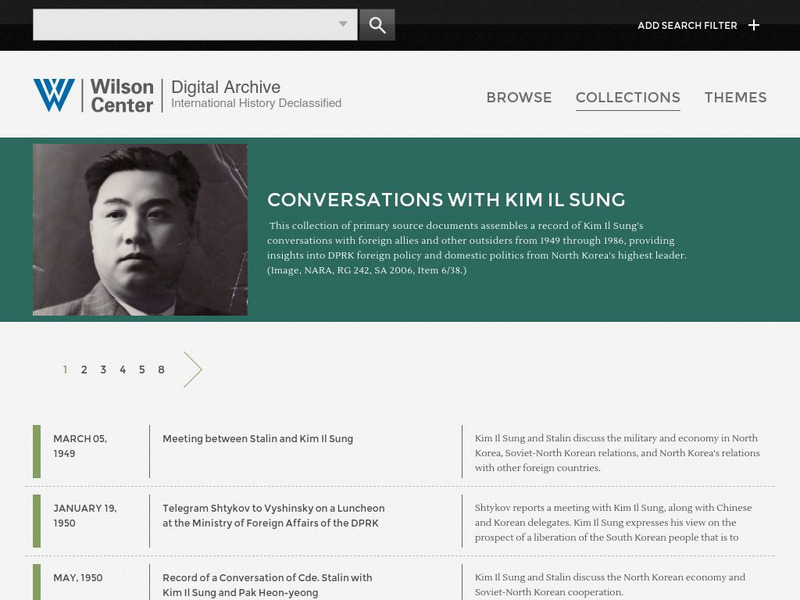Hi, what do you want to do?
Newseum
Today's Front Pages
Take a close look at a number of newspapers with collection of lessons and activities. Using a poster (which can be found under the materials tab), learners examine the hard copy of a local newspaper. This leads into an exploration of...
Curated OER
Royal Proclamation on Education: King Chulalongkorn of Siam
How much did the King of Siam value education? Why did he believe haste was important? How do his views compare with modern views of education? These are the questions your class will answer after reading an excerpt from the "Royal...
Curated OER
French Revolution: The Declaration of Pillnitz
Answering document-based questions increases critical analysis and comprehension skills. The class reads a passage from The Declaration of Pillnitz then answers three critical thinking questions.
Curated OER
The Declaration of Pillnitz (1791)
Primary source documents are wonderful because they provide a real context for historical events. Here is an expert from The Declaration of Pillnitz (1791) for your readers to examine. They consider the passage then use it to answer...
Curated OER
Seneca Falls Convention: Declaration of Sentiments
The Seneca Falls Convention was an amazing outlet for the female voice during the time of women's suffrage. Learners will read a short, but powerful excerpt from the Declaration of Sentiment, as spoken at the convention. They'll answer...
Curated OER
Excerpt: Cecil Rhodes' Confession of Faith (1877)
Consider the words of Cecil Rhodes after reading this short excerpt from his publication, Confession of Faith. Upper graders read the excerpt then answer two questions analyzing the view of Africans toward his praise of British...
Curated OER
Imperialism: J.A. Hobson (1902)
J.A. Hobson was a popular writer, economist, and critic of Imperialism. Learners will read a short excerpt from one of his publications and answer two, two-part questions regarding his views on Western imperialism in Asia. Tip: Ask your...
Curated OER
Liberty Rhetoric
What is liberty rhetoric? Examine how people have used it in four different time periods and situations. High schoolers investigate original source documents and compare them with the Declaration of Independence to decide how liberty...
Curated OER
The Third Estate
Kids read a translated version of Abbe Sieyes' document, The Third Estate. This document is shown in its original form and as an English translation. After reading the text they answer three critical thinking question to show their...
Curated OER
Excerpt from Edward Bain's The History of Cotton Manufacture in Great Britain (1835)
Great Britain was where the industrial revolution began. The class reads an excerpt from a document written in 1835 describing cotton manufacture in Great Britain. They then answer two critical analysis questions.
Curated OER
Hugh Miller's The Old Red Sandstone (1841)
Pollution has been an issue since the advent of stratified society. Learners will read this excerpt from Hugh Miller's The Old Red Sandstone (1841) then answer two document-analysis questions.
Curated OER
Revolution of 1848 - Alexis de Tocqueville
Document-based questions are a great way to increase understanding of a primary source document or prepare learners for a class discussion. Here, they'll read an excerpt from Alexis de Tocqueville's speech regarding the revolution of...
Curated OER
Excerpt from Elizabeth Gaskell's Mary Barton (1848)
Answering document-based questions is a great way to build reading comprehension and critical thinking skills. Learners read an excerpt from Elizabeth Gaskell's Mary Barton, then answer two related questions.
National Archives (UK)
The National Archives: Henry Viii
This collection of records and primary source documents from the reign of Henry VIII show how Henry developed his own image to make himself seem even more powerful.
US National Archives
Our Documents: Establishment of the Peace Corps.(1961)
Shows the original document of the executive order that President Kennedy signed establishing the Peace Corps in 1961. Gives background information and the complete easy to read text.
Northwestern University
Hidden Truths: The Chicago City Cemetery and Lincoln Park
This project details the research, beginning with the original documents, and shows how the Chicago City cemetery became Lincoln Park. It also reveals how the physical remains of earlier Chicagoans became buried within the layers of...
Other
Dublin Institute for Advanced Studies: Irish Script on Screen
Featuring primary-source documents, this online exhibit contains digital images of Irish manuscripts while providing exposure of a vital part of Ireland's cultural heritage.
Other
Digital Docs in a Box: Westward Expansion at Its Impact on Native Americans
With the documents and images contained in this Doc Box, students can inquire, investigate and create documentaries exploring expansion and the impact on Native Americans. With the detailed documents describing the general view of Native...
Woodrow Wilson International Center for Scholars
Woodrow Wilson Center: Digital Archive: Chinese Foreign Policy
Documents on China's foreign relations, focusing on its relationship with the Soviet Union and the United States.
Library of Congress
Loc: History Firsthand: Primary Source Research
History Firsthand has been designed to provide elementary children with experiences which enable them to begin understanding primary sources. Students move from personal artifacts to the vast American Memory collections and learn how...
Woodrow Wilson International Center for Scholars
Woodrow Wilson Center: Digital Archive: China North Korea Relations
This collection of documents probes the relationship between China and North Korea from the 1940s through the 1980s. While often described as being "as close as lips to teeth," this collection highlights instances of both cooperation and...
Woodrow Wilson International Center for Scholars
Woodrow Wilson Center: Digital Archive: Cold War Origins
This collection of primary source documents discusses international relations during World War II and the years shortly after. It begins with the Molotov-Ribbentrop Pact signed in 1939 and ends with documents from the 1950's. The...
Woodrow Wilson International Center for Scholars
Woodrow Wilson Center: Digital Archive: Conference on Security & Cooperation
Documents from the years 1968 to 1976 on the Conference on Security and Cooperation in Europe (CSCE), which concluded with the signing of the Helsinki Final Act on August 1, 1975.
Woodrow Wilson International Center for Scholars
Woodrow Wilson Center: Digital Archive: Conversations With Kim Il Sung
This collection of primary source documents assembles a record of Kim Il Sung's conversations with foreign allies and other outsiders from 1949 through 1986, providing insights into DPRK foreign policy and domestic politics from North...


























